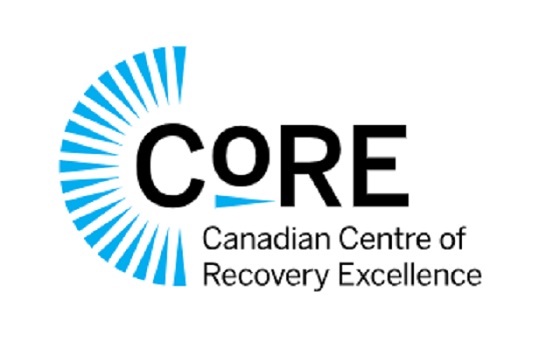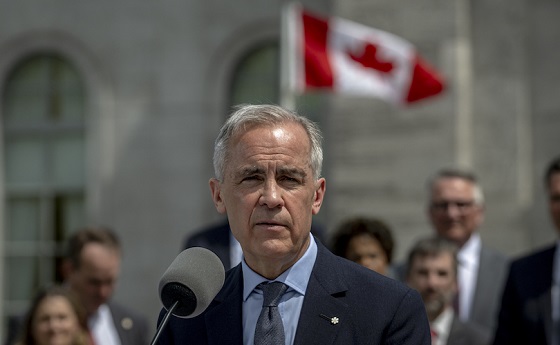Addictions
New organizations for mental health and addictions to provide focused care and take pressure off health system

Refocusing health care: mental health and addiction
Alberta’s government is creating two new organizations that will support the development of the mental health and addiction system of care.
In November 2023, Alberta’s government announced it would be refocusing health care with the creation of four new organizations that will be responsible for the oversight and delivery of health care services in the province. The four new organizations include acute care, continuing care, primary care and mental health and addiction. The mental health and addiction organization will be the first of these to be established when it becomes an entity later this year.
The new mental health and addiction organization, Recovery Alberta, will be responsible for the delivery of mental health and addiction services currently delivered by Alberta Health Services (AHS). In addition, Alberta’s government is establishing the Canadian Centre of Recovery Excellence (CoRE) to support Alberta’s government in building recovery-oriented systems of care by researching best practices for recovery from around the world, analyzing data and making evidence-based recommendations.
“Refocusing health care enables us to better prioritize the health care and services Albertans need. Giving Albertans living with mental health or addiction challenges an opportunity to pursue recovery and live a contributing life is the responsible and compassionate thing to do. I am so proud of the work we have done to be leaders on recovery, and I am looking forward to seeing both Recovery Alberta and the Canadian Centre of Recovery Excellence continue this work for years to come.”
“Alberta is leading the country with the development of the Alberta Recovery Model to address mental health and addiction challenges. The establishment of these two new organizations will support the delivery of recovery-oriented services to Albertans and will further cement Alberta as a leader in the field. We are proud to establish Recovery Alberta and CoRE as part of the Alberta Recovery Model.”
“We’re making good progress on refocusing health care in Alberta. Today marks a pivotal milestone towards creating a system that truly serves the needs of Albertans. Through this refocused approach, our aim is to prioritize the needs of individuals and families to find a primary care provider, get urgent care without long waits, access the best continuing care options, and have robust support systems for addiction recovery and mental health treatment.”
Recovery Alberta
In August 2023, Alberta’s Ministry of Mental Health and Addiction began the process of consolidating the delivery of mental health and addiction services within AHS, a process that was completed in November 2023 with no disruption to services.
Recovery Alberta will report to the Ministry of Mental Health and Addiction and further support the Ministry’s mandate to provide high-quality, recovery-oriented mental health and addiction services to Albertans. It is anticipated Recovery Alberta will be fully operational by summer 2024 and will operate with an annual budget of $1.13 billion from Alberta’s government. This funding currently supports the delivery of mental health and addiction services through AHS.
The current provincial leadership team for Addiction and Mental Health and Correctional Health Services within AHS will form the leadership team of Recovery Alberta. When Recovery Alberta is fully established, Kerry Bales, the current Chief Program Officer for Addiction and Mental Health and Correctional Health Services within AHS will be appointed as CEO. Dr. Nick Mitchell, Provincial Medical Director, Addiction and Mental Health and Correctional Health Services within AHS, will become the Provincial Medical Director for Recovery Alberta.
“Recovery Alberta will build on the strong foundation of existing mental health and addiction services that staff and clinicians deliver. By working closely with Alberta Mental Health and Addiction and the Canadian Centre of Recovery Excellence, Recovery Alberta will continue to set a high standard of care for mental health and addiction recovery across the province, and beyond.”
“Albertans deserve patient-centered care when and where they need it. By establishing Recovery Alberta, we have an opportunity to work together in a new way to make that a reality for our patients and our communities.”
While timelines are dependent on legislative amendments yet to be introduced, the Ministry of Mental Health and Addiction is aiming to establish the corporate structure of Recovery Alberta by June 3. Following the establishment of the corporate structure and executive team, staff and services would begin operation under the banner of Recovery Alberta on July 1.
Frontline workers and service providers will continue to be essential to care for Albertans. To ensure stability of services to Albertans, there will be no changes to terms and conditions of employment for AHS addiction and mental health staff transitioning to Recovery Alberta. Additionally, there will be no changes to grants or contracts for service providers currently under agreement with AHS upon establishment of Recovery Alberta.
Canadian Centre of Recovery Excellence (CoRE)
Alberta’s government has been leading the country in creating a system focused on recovery by building on evidence-based best practices from around the world. In five years, Alberta has removed user fees for treatment, increased publicly funded treatment capacity by 55 per cent and built two recovery communities with nine more on the way. Alberta’s government has also pioneered new best practices such as making evidence-based treatment medication available same day with no cost and no waitlist across the province through the Virtual Opioid Dependency Program.
To continue the innovative work required to improve the mental health and addiction system, Alberta’s government is creating the Canadian Centre of Recovery Excellence to inform best practices in mental health and addiction, conduct research and program evaluation and support the development of evidence-based policies for mental health and addiction. CoRE will be established as a crown corporation through legislation to be introduced this spring.
Alberta’s government has committed $5 million through Budget 2024 to support the establishment of CoRE. It is anticipated CoRE will be operational by this summer.
The CoRE leadership team will consist of Kym Kaufmann, former Deputy Minister of Mental Health and Community Wellness in Manitoba as the CEO. She will be supported by Dr. Nathaniel Day as Chief Scientific Officer of CoRE. Dr. Day currently serves as the Medical Director of Addiction and Mental Health within AHS.
“There is a need for more scientific evidence on how best to help those impacted by addiction within our society. The Canadian Centre of Recovery Excellence will generate new and expanded evidence on the most effective means to support individuals to start and sustain recovery.”
“The Canadian Centre of Recovery Excellence will provide the research and data we need to understand what works best when it comes to recovery. This new expertise and expanded evidence will provide us with further insight into how we can support communities, service providers and frontline staff to effectively help those living with addiction and mental health challenges.”
Quick facts
- Budget 2024 will invest more than $1.55 billion to continue building the Alberta Recovery Model.
- This includes a $1.13 billion transfer from Health to Mental Health and Addiction (MHA) for mental health and addiction services currently delivered by Alberta Health Services.
- Virtual engagement sessions for AHS staff and service providers will be held on April 11, 16, 17 and 22.
Related information
Addictions
The War on Commonsense Nicotine Regulation

From the Brownstone Institute
Cigarettes kill nearly half a million Americans each year. Everyone knows it, including the Food and Drug Administration. Yet while the most lethal nicotine product remains on sale in every gas station, the FDA continues to block or delay far safer alternatives.
Nicotine pouches—small, smokeless packets tucked under the lip—deliver nicotine without burning tobacco. They eliminate the tar, carbon monoxide, and carcinogens that make cigarettes so deadly. The logic of harm reduction couldn’t be clearer: if smokers can get nicotine without smoke, millions of lives could be saved.
Sweden has already proven the point. Through widespread use of snus and nicotine pouches, the country has cut daily smoking to about 5 percent, the lowest rate in Europe. Lung-cancer deaths are less than half the continental average. This “Swedish Experience” shows that when adults are given safer options, they switch voluntarily—no prohibition required.
In the United States, however, the FDA’s tobacco division has turned this logic on its head. Since Congress gave it sweeping authority in 2009, the agency has demanded that every new product undergo a Premarket Tobacco Product Application, or PMTA, proving it is “appropriate for the protection of public health.” That sounds reasonable until you see how the process works.
Manufacturers must spend millions on speculative modeling about how their products might affect every segment of society—smokers, nonsmokers, youth, and future generations—before they can even reach the market. Unsurprisingly, almost all PMTAs have been denied or shelved. Reduced-risk products sit in limbo while Marlboros and Newports remain untouched.
Only this January did the agency relent slightly, authorizing 20 ZYN nicotine-pouch products made by Swedish Match, now owned by Philip Morris. The FDA admitted the obvious: “The data show that these specific products are appropriate for the protection of public health.” The toxic-chemical levels were far lower than in cigarettes, and adult smokers were more likely to switch than teens were to start.
The decision should have been a turning point. Instead, it exposed the double standard. Other pouch makers—especially smaller firms from Sweden and the US, such as NOAT—remain locked out of the legal market even when their products meet the same technical standards.
The FDA’s inaction has created a black market dominated by unregulated imports, many from China. According to my own research, roughly 85 percent of pouches now sold in convenience stores are technically illegal.
The agency claims that this heavy-handed approach protects kids. But youth pouch use in the US remains very low—about 1.5 percent of high-school students according to the latest National Youth Tobacco Survey—while nearly 30 million American adults still smoke. Denying safer products to millions of addicted adults because a tiny fraction of teens might experiment is the opposite of public-health logic.
There’s a better path. The FDA should base its decisions on science, not fear. If a product dramatically reduces exposure to harmful chemicals, meets strict packaging and marketing standards, and enforces Tobacco 21 age verification, it should be allowed on the market. Population-level effects can be monitored afterward through real-world data on switching and youth use. That’s how drug and vaccine regulation already works.
Sweden’s evidence shows the results of a pragmatic approach: a near-smoke-free society achieved through consumer choice, not coercion. The FDA’s own approval of ZYN proves that such products can meet its legal standard for protecting public health. The next step is consistency—apply the same rules to everyone.
Combustion, not nicotine, is the killer. Until the FDA acts on that simple truth, it will keep protecting the cigarette industry it was supposed to regulate.
Addictions
The Shaky Science Behind Harm Reduction and Pediatric Gender Medicine


By Adam Zivo
Both are shaped by radical LGBTQ activism and questionable evidence.
Over the past decade, North America embraced two disastrous public health movements: pediatric gender medicine and “harm reduction” for drug use. Though seemingly unrelated, these movements are actually ideological siblings. Both were profoundly shaped by extremist LGBTQ activism, and both have produced grievous harms by prioritizing ideology over high-quality scientific evidence.
While harm reductionists are known today for championing interventions that supposedly minimize the negative effects of drug consumption, their movement has always been connected to radical “queer” activism. This alliance began during the 1980s AIDS crisis, when some LGBTQ activists, hoping to reduce HIV infections, partnered with addicts and drug-reform advocates to run underground needle exchanges.
The Bureau is a reader-supported publication.
To receive new posts and support my work, consider becoming a free or paid subscriber.
In the early 2000s, after the North American AIDS epidemic was brought under control, many HIV organizations maintained their relevance (and funding) by pivoting to addiction issues. Despite having no background in addiction medicine, their experience with drug users in the context of infectious diseases helped them position themselves as domain experts.
These organizations tended to conceptualize addiction as an incurable infection—akin to AIDS or Hepatitis C—and as a permanent disability. They were heavily staffed by progressives who, influenced by radical theory, saw addicts as a persecuted minority group. According to them, drug use itself was not the real problem—only society’s “moralizing” norms.
These factors drove many HIV organizations to lobby aggressively for harm reduction at the expense of recovery-oriented care. Their efforts proved highly successful in Canada, where I am based, as HIV researchers were a driving force behind the implementation of supervised consumption sites and “safer supply” (free, government-supplied recreational drugs for addicts).
From the 2010s onward, the association between harm reductionism and queer radicalism only strengthened, thanks to the popularization of “intersectional” social justice activism that emphasized overlapping forms of societal oppression. Progressive advocates demanded that “marginalized” groups, including drug addicts and the LGBTQ community, show enthusiastic solidarity with one another.
These two activist camps sometimes worked on the same issues. For example, the gay community is struggling with a silent epidemic of “chemsex” (a dangerous combination of drugs and anonymous sex), which harm reductionists and queer theorists collaboratively whitewash as a “life-affirming cultural practice” that fosters “belonging.”
For the most part, though, the alliance has been characterized by shared tones and tactics—and bad epistemology. Both groups deploy politicized, low-quality research produced by ideologically driven activist-researchers. The “evidence-base” for pediatric gender medicine, for example, consists of a large number of methodologically weak studies. These often use small, non-representative samples to justify specious claims about positive outcomes. Similarly, harm reduction researchers regularly conduct semi-structured interviews with small groups of drug users. Ignoring obvious limitations, they treat this testimony as objective evidence that pro-drug policies work or are desirable.
Gender clinicians and harm reductionists are also averse to politically inconvenient data. Gender clinicians have failed to track long-term patient outcomes for medically transitioned children. In some cases, they have shunned detransitioners and excluded them from their research. Harm reductionists have conspicuously ignored the input of former addicts, who generally oppose laissez-faire drug policies, and of non-addict community members who live near harm-reduction sites.
Both fields have inflated the benefits of their interventions while concealing grievous harms. Many vulnerable children, whose gender dysphoria otherwise might have resolved naturally, were chemically castrated and given unnecessary surgeries. In parallel, supervised consumption sites and “safer supply” entrenched addiction, normalized public drug use, flooded communities with opioids, and worsened public disorder—all without saving lives.
In both domains, some experts warned about poor research practices and unmeasured harms but were silenced by activists and ideologically captured institutions. In 2015, one of Canada’s leading sexologists, Kenneth Zucker, was fired from the gender clinic he had led for decades because he opposed automatically affirming young trans-identifying patients. Analogously, dozens of Canadian health-care professionals have told me that they feared publicly criticizing aspects of the harm-reduction movement. They thought doing so could invite activist harassment while jeopardizing their jobs and grants.
By bullying critics into silence, radical activists manufactured false consensus around their projects. The harm reductionists insist, against the evidence, that safer supply saves lives. Their idea of “evidence-based policymaking” amounts to giving addicts whatever they ask for. “The science is settled!” shout the supporters of pediatric gender medicine, though several systematic reviews proved it was not.
Both movements have faced a backlash in recent years. Jurisdictions throughout the world are, thankfully, curtailing irreversible medical procedures for gender-confused youth and shifting toward a psychotherapy-based “wait and see” approach. Drug decriminalization and safer supply are mostly dead in North America and have been increasingly disavowed by once-supportive political leaders.
Harm reductionists and queer activists are trying to salvage their broken experiments, occasionally by drawing explicit parallels between their twin movements. A 2025 paper published in the International Journal of Drug Policy, for example, asserts that “efforts to control, repress, and punish drug use and queer and trans existence are rising as right-wing extremism becomes increasingly mainstream.” As such, there is an urgent need to “cultivate shared solidarity and action . . . whether by attending protests, contacting elected officials, or vocally defending these groups in hostile spaces.”
How should critics respond? They should agree with their opponents that these two radical movements are linked—and emphasize that this is, in fact, a bad thing. Large swathes of the public understand that chemically and surgically altering vulnerable children is harmful, and that addicts shouldn’t be allowed to commandeer public spaces. Helping more people grasp why these phenomena arose concurrently could help consolidate public support for reform and facilitate a return to more restrained policies.
Adam Zivo is director of the Canadian Centre for Responsible Drug Policy.
For the full experience, please upgrade your subscription and support a public interest startup.
We break international stories and this requires elite expertise, time and legal costs.
-

 Justice1 day ago
Justice1 day agoCarney government lets Supreme Court decision stand despite outrage over child porn ruling
-

 Daily Caller2 days ago
Daily Caller2 days agoUS Eating Canada’s Lunch While Liberals Stall – Trump Admin Announces Record-Shattering Energy Report
-

 Business1 day ago
Business1 day agoCarney’s budget spares tax status of Canadian churches, pro-life groups after backlash
-

 COVID-191 day ago
COVID-191 day agoFreedom Convoy leader Tamara Lich to appeal her recent conviction
-

 Daily Caller1 day ago
Daily Caller1 day agoUN Chief Rages Against Dying Of Climate Alarm Light
-

 Business2 days ago
Business2 days agoPulling back the curtain on the Carney government’s first budget
-

 Energy2 days ago
Energy2 days agoEby should put up, shut up, or pay up
-

 Business2 days ago
Business2 days agoThe Liberal budget is a massive FAILURE: Former Liberal Cabinet Member Dan McTeague












